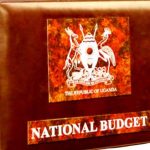Uganda’s political activism is in an ideological crisis. The imagination of freedom continues to produce disarray within the political parties and public intellectuals. One of the questions of contention relates to the strategy of pursuing freedom and another, to the nature of freedom. The major rift exists between activists who believe freedom has to be fought for through street protests, and those who argue that they want to put the oppressed and the oppressor in dialogue, through round-table negotiations. On the nature of freedom, some believe that freedom means abolishing the Ugandan state and returning to precolonial kingdoms, while others contend that the Ugandan state could be reformed by detribalizing it and turning it into a country where every resident enjoys equal rights and privileges. The most inflamed debate however pertains to how to pursue freedom, regardless of what the concept means for those involved. The pursuit of freedom in Uganda ironically confronts a state whose political leaders also define themselves as freedom fighters. Therefore, Uganda’s political activism would need conceptual and ideological clarity on what freedom means. The failure to conceptualize freedom in its Ugandan context has divided activist movements.
Uganda’s political activism has a diaspora wing which has more often wanted to patronize the Ugandans in the pursuit of freedom. The diaspora wing severally imagines itself as the most aggrieved than the Ugandans back home, and it castigates them on a daily for not being angry enough. In the midst of a crossroad, Uganda’s political activists both at home and abroad are turning against each other with demeaning labels, infantilizing each other’s efforts and while doing so, even taking on the abusive language of their oppressors. They accuse each other of betraying the fight for freedom by selling the struggle to either foreign interests or the very political regime inhibiting the freedoms of Ugandans. The spectre of money is a hotbed of the sabotage that Uganda’s political activism is especially gravitating towards. Money has split Uganda’s activist work as individuals fashion small ideological differences from where they take different paths just to compete for money. Money has also changed Uganda’s fight for freedom into a search for stardom. Each political activist onto whom social media bestows the honour of ‘working for the people’, runs to begin a Non-Government Organization (NGO), never mind that they often call these, Not-for-Profit organizations. Uganda’s activist organizations have turned the struggle into a business. When activists turn against each other, it is an art of business competition and they are often fighting over funders, lovers or followers. Money heists, sex scandals and clout chasing are slowly turning Uganda’s political activism into a theatre of the absurd.
The absurdity of Uganda’s political activism further manifests in the disconnect between the online activist and the Kiseka Market activist. The recent March-to-Parliament anti-corruption protests organized online have mapped the contours of the problem at hand. The Kiseka Market activists wonder where suddenly the lawyers, sureties, bail money and even ability to attain bail for the anti-corruption activists had come from, yet their own comrades from downtown protests of yesteryears are still languishing in prison. Because of the mistrust that the Kiseka Market activist has of the online activist and the disconnect between them, the Kiseka Market activist did not join the anti-corruption protests. Uganda’s political activists need to organize more and produce a sense of ideological unity, at least first, on what freedom means in the Ugandan context.
Dr. Jacob Katumusiime,
The author is a Political Scientist based at Makerere University.
[email protected] / On X (Twitter): @Jacob_K2musiime
This post was created with our nice and easy submission form. Create your post!








